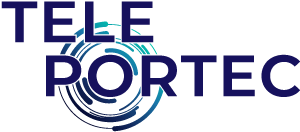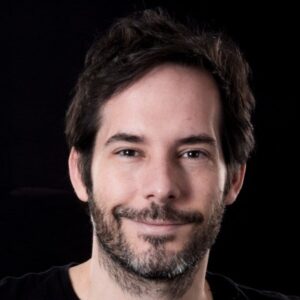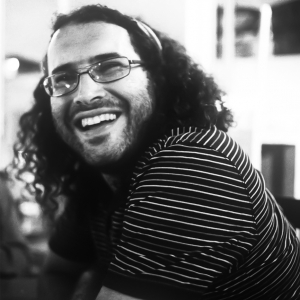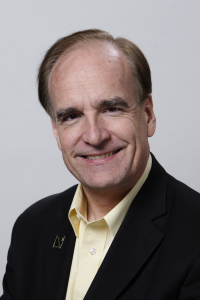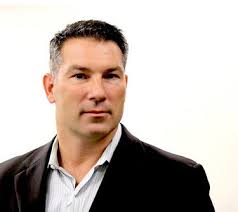Mike Vergalla, Co-Founder and CTO of Outpost, is an advanced paraglider with a passion for creating positive global impact. He holds Masters and Bachelors degrees in Aerospace Engineering from Florida Institute of Technology. He attended International Space University, in 2010 and the Graduate Program at Singularity University, in 2015.
From 2010-2016, Michael was the second engineer for Moon Express, a commercial lunar delivery services company and worked on lunar lander and Earth-sample-return design concepts. From 2016-2018 Michael served as adviser and lead aerospace engineer for Spin Launch, helping to take the group from concept to fundraising via technical and strategic support. In 2016, Michael founded the non-profit, Free Flight Research Lab, and used non-rigid airfoil platforms to advance climate science, conservation and safety. He was featured on BBC Natural Worlds’ Super Powered Eagles program as a pilot and developed robotic free flight platforms that would end up being the basis of Airbus’s Project Monark which Mike led as Project Executive.
At Outpost, Michael is leveraging his unique and extensive experience with high altitude paragliding technology and spearheading the development of the first autonomous paraglider re-entry system that will enable Earth return with Outpost’s reusable satellite platform.
Sample Topics
The potential of high altitude systems (HAPs), to disrupt and compliment space based communication networks.
What shifts will occur to our constants of today? Cell towers have all but replaced wire based communication networks. What new technology has the potential to leapfrog established infrastructures? Players such as SpaceX and Oneweb have bet heavily on space based networks. This talk will share what’s on the horizon for both space based constellations and emerging technologies that will disrupt the entire direction of low earth orbit (LEO) based communication. We will dive into rapidly advancing, deployable communication systems that skip the massive challenge of launching from Earth to Space. Limited today only by current regulations for operating un-crewed platforms. This talk will seek to shed light on potential blindspots for growth in the telecommunications industry.
Innovation in Building a Space Company.
From Robotic lunar landers, centrifugal launch systems, to Earth return reusable satellites. Michael is an expert in building companies that innovate space systems. This talk will dive into the ingredients and technologies that have allowed small organizations to achieve what only was once possible by super powers. The culture, the mindset, and the testing that it requires to be disruptive in Space. What’s on the horizon, and how can your organization leverage these strategies to one step ahead of the competition.
Prototyping with a Rocket Scientist – Workshop
Even the best rocket engine designs need to stand up to testing. It’s ok to start from a known configuration, but the lessons of early testing cannot be overstated as learning the subtle variations between design and reality will determine success or catastrophic failure.
Learn about the process of building things that go boom through a hands-on competition of flying contraptions. You will go through the cycle of Experimentation, Building Knowledge and Applying Experience. Will this lead your team to success? You will be able to take this framework back to your teams and demonstrate the same process of building experience through testing forward iterations.
Weather, The Invisible Force
This is our world and the single most important factor that determines everything in it; Is the only one we can’t control, the weather. What we eat, how we live, the colors we see around us. Even the songs we sing and the stories we tell. Its invisible forces impact everything, all the time, everywhere. We can react to it, adapt, surrender. Or, if we are smart enough we can use it to our advantage. Play with it, explore with it, learn from it, communicate, reach up, observe, anticipate.
Reframing Robotics
A tsunami wave of invention is occurring in robotics, enabled by inexpensive sensors and control systems. Robots have moved out of traditional industrial manufacturing, assembly, and painting jobs, and into hospitals, roads, aerial vehicles, small businesses, and the home. How are robots used today in everyday life? When are we going to have robots as personal assistants and household servants? What are the ultimate roles for robots? Will there be a day when humans will not have to do unwanted physical activity, and everyone has a companion that responds to their needs, and acts on their desires. What are the positive and negative aspects of these developments? Uses examples of today’s robots along with concepts of more advanced robots in development to discuss these topics from the perspective of accelerating technology and the impact of the robot revolution on occupations and society.This talk will help you reframe robotics and what we consider a robot. Your job is to find the signal in the noise.
How Generative Design will Empower the Future Creatives of the World
As we use low-cost, distributed sensors to connect this world, our ability to generate insights and solutions for highly complex problems escapes our capacity to do it alone.
We will continue to build larger, interactive, responsive structures with millions of constraints and variables that balance human needs with design, engineering, and business requirements (think: space stations, factories, sustainable cities, weather etc.) How, then, can we build a scalable, efficient system, capable of handling large amounts of data, while reducing the time complexity involved in coming up with a solution, or solution spaces?
The answer lies in the new field of “generative design”.
This emerging design methodology leverages the convergence of digital design tools with low-cost distributed computation. Today it’s possible to auto-generate design models and build complex structures with efficient integration and higher level of granularity in increasingly short periods. This has a direct impact on the not only the final product but the team building and iterating through the design process.
Michael Vergalla explores the future of generative design, where computers will collaborate with humans to build intricate models, and how we’re close to a future where intelligent systems could soon acquire the creative abilities to build sophisticated design models.
In this talk, you will:
– Explore real-life implementations of generative design, and get a view into the latest tools that are currently used for creative computational modeling
– Capture insights on how to utilize computational collaboration, and work alongside an intelligent, creative digital team-mate
– Discover long-term implications of trends in generative design
– Analyze the future risks, opportunities, and challenges in generative design.

